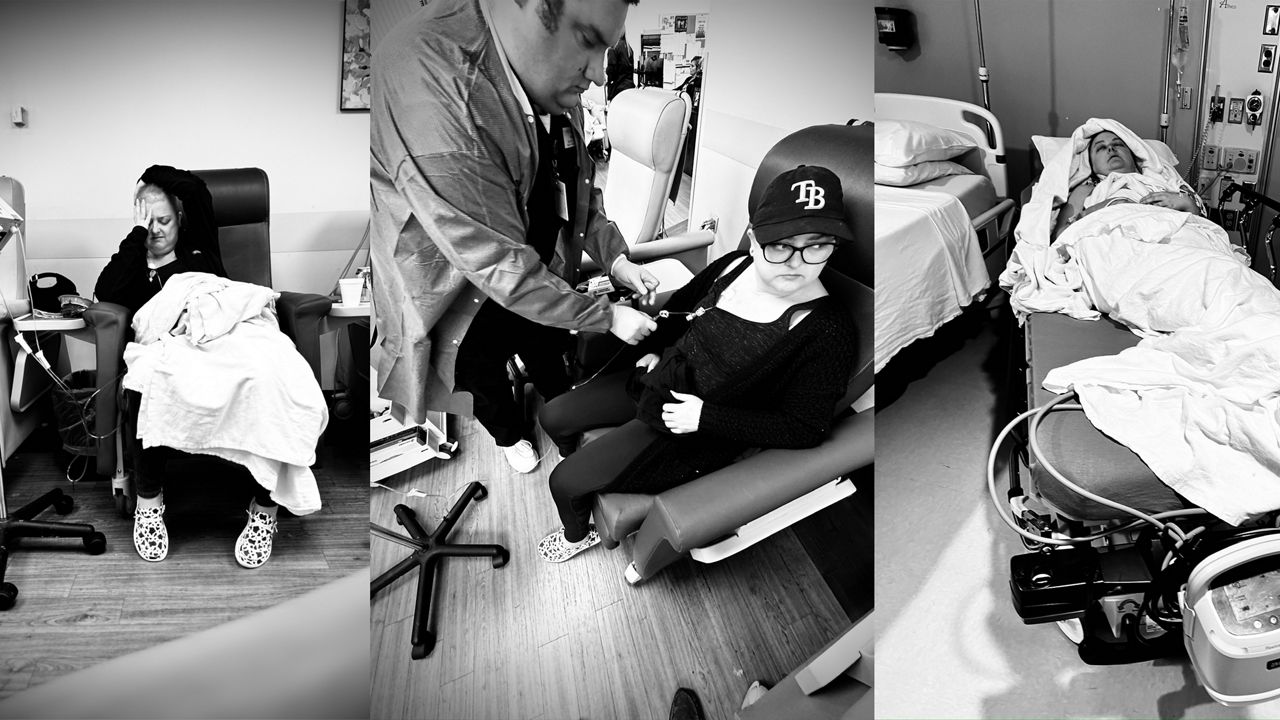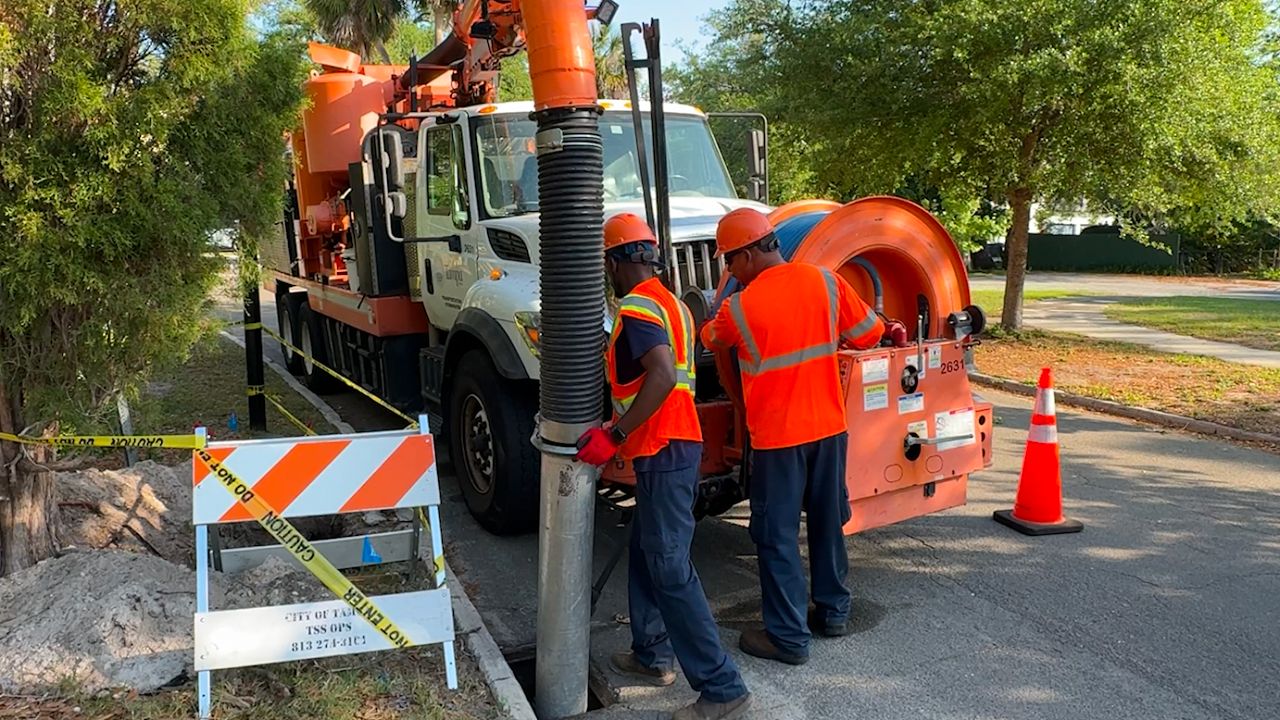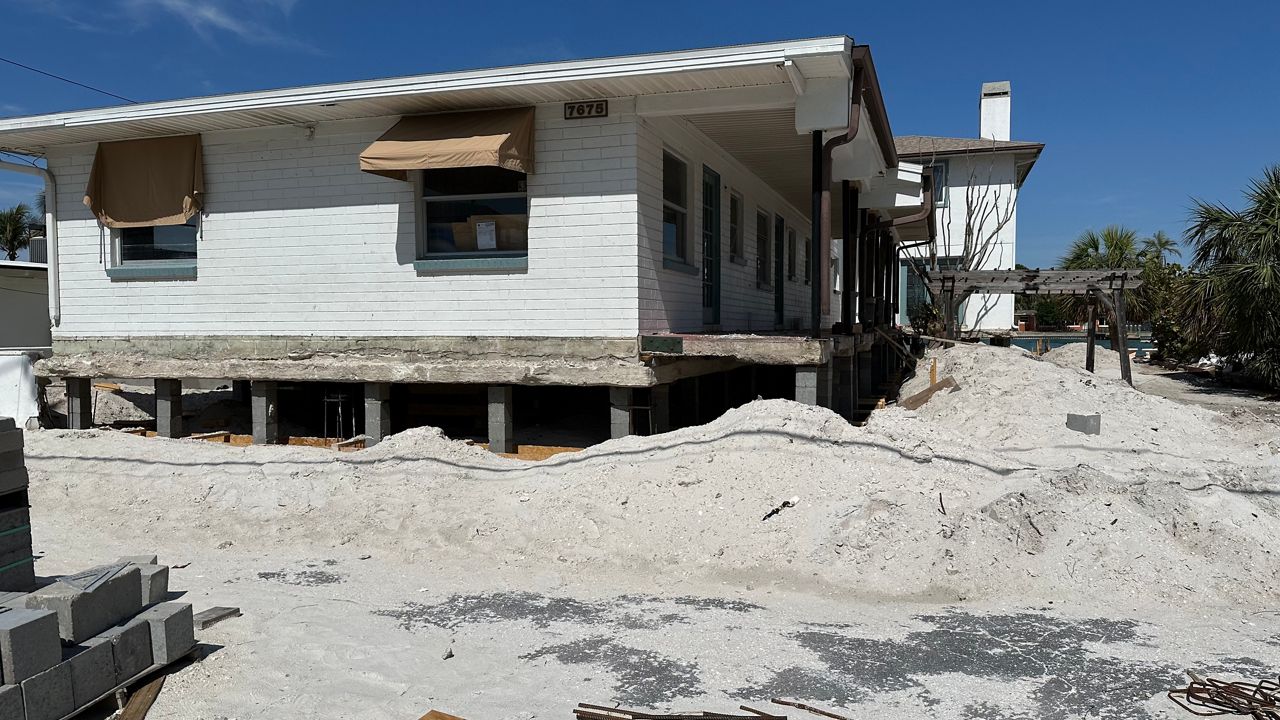ST. PETERSBURG, Fla. — Meagan May, 39, does not rush the moment any more.
As her twin boys take their time walking into the house from school, she patiently waits for them to make their way to the kitchen so she can help make them a snack.
Her boys are both 18 and could easily make themselves a snack, but this ritual is about spending time together.
“I’m thankful to be here,” said May. “Last October, last December, last year. Anyway, we didn’t really think I was going to make it through.”
In October 2023, May began feeling severe pain in her stomach. She also had noticed changes in her bowel movements.
At the time, she tried to ignore it, not wanting to go to the hospital for something small. But the pain grew to be too great to ignore.
“They found a massive tumor on my ovary and a tumor in my colon and in my liver,” said May.
She spent ten days in the hospital as doctors collected biopsies, did scans and performed a colonoscopy.

A collection of photos provided by Meagan May during her treatment at Orlando Health Bayfront Hospital.
“My doctor was is one of the most amazing people and doctors I’ve ever come across. Dr. Williams,” said May. “He was the one that sat down and told us...”
May’s voice begins to crack as tears slowly trail down her face. Even now it is hard to retell how she found out she had stage four colon cancer.
She looks at the positive now, thankful for the hospital and doctors she turned to.
“I was grateful because at Orlando Health Bayfront, where I met Dr. Williams, they have a tumor board, so all of my doctors were meeting and discussing my case specifically all together at the same time,” said May.
Dr. J. Ryan Williams is a colon and rectal surgeon at Orlando Health Bayfront Hospital in St. Pete.
“She had a large tumor here over on that right side of the colon,” said Dr. Williams when remembering May’s case.
Williams and other physicians had May go through chemotherapy prior to surgery to remove the tumor in her colon. May also needed a hysterectomy because of the severity of the tumor on her ovary.
After those procedures, she then did more chemo and radiation to remove the tumor in her liver.
Williams says May has responded well to treatment.
“Yeah, this is best case scenario, this is just absolutely just best care scenario that we just wished for her the whole time,” said Williams.
May, however, is part of a growing population of younger adults getting colon cancer, ages 35 to 50.
“I wish we knew what it was. I wish we could say this is the thing that’s causing it, but we don’t,” said Dr. Williams.
It is now recommended that people at the age of 45 get a colonoscopy screening. Then continued to get screened every ten years.
“Yeah, get it done,” said Dr. Williams. “If you have symptoms, don’t ignore them. Don’t ignore them. If you’re bleeding … if you’re having abdominal discomfort, that doesn’t seem to go away. Just go talk to your primary care doctor.”
“I take every day as a blessing,” said May.
March is colorectal cancer awareness month.
Colorectal cancer can run in families. If a family member has the disease, doctors recommend getting tested for the gene mutation.
May did not have the inheritable gene.
Symptoms for colorectal cancer include rectal bleeding with or without pain, blood in stool, a change in bowel pattern, anemia, bloating or cramping, unexplained weight loss, and fatigue or reduced stamina.












